Global Warming
Global Warming
We hear about this almost every day, but what exactly causes global warming?
That's a controversial question with many divergent answers. One must go back to basics and understand that there are two sources of greenhouse gases that most scientists say are the root cause of global warming.
Global warming is cited as the reason that many glaciers are melting away, the temperature of the oceans has increased, coral is dying off, the oceans are rising, and storms are becoming more severe.
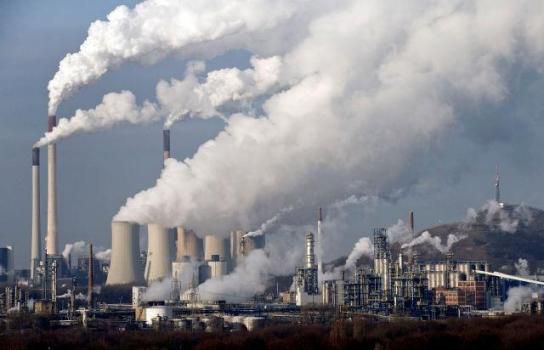
The main problem with laying blame for global warming is that there are two basic sources of carbon dioxide, the gas in our atmosphere that takes the blame for a warming climate on Earth. There are natural causes and anthropogenic causes. The latter refers to manmade carbon dioxide emissions.
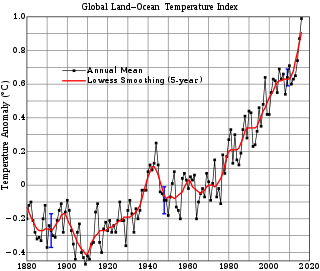
Anthropogenic causes for carbon emissions consist of electricity generation, manufacturing, and agricultural sources, such as ethanol and fertilizer production, to name a few. Electricity generation has the lions share at 72%. Human and animal respiration is also included in this list. I calculated that a typical human exhales 1 liter of carbon dioxide a day, which multiplied by the number of humans means that 7 billion liters of carbon dioxide are added to the atmosphere every day. Animals add roughly another 7 billion. Although, that sounds like a lot it's not nearly what power plants put out in a day. The total output of carbon dioxide due to fossil burning fuels is over 6 X 10 to the 12 kilograms.
Of course, there are other sources of greenhouse gases, including methane and water vapor, but these are not easy to control. Carbon dioxide emission can be controlled.
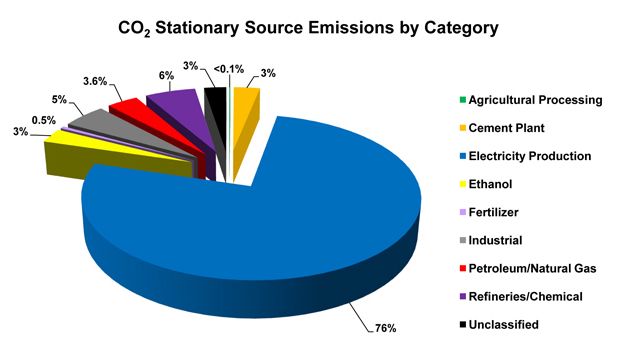
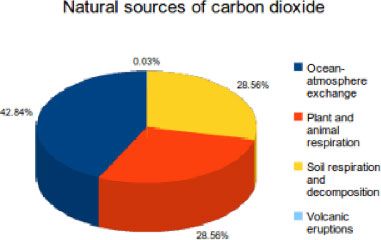
Natural causes are many, including the ocean, which adds tons of carbon dioxide into the atmosphere, and volcano eruptions, decomposition of organic matter, and forest fires.
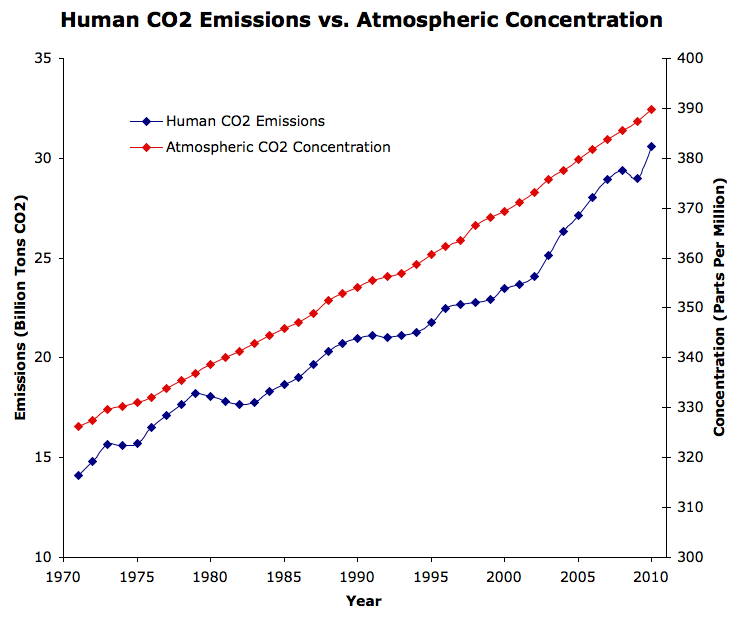
There isn't much we could do with natural causes, and respiration is out of the prevention equation. Obviously, the only way to control carbon dioxide emissions is to generate electricity using clean methods like wind power, and solar energy. The problem is that these methods are not very cost efficient. They probably will be in the future. Other ideas would be to use more nuclear power, but that idea creates a lot of new problems, including what to do with the nuclear waste.
I question whether mankind will ever completely control carbon emissions. To stop all anthropogenic sources would cost a lot of money and result in painful displacement. I don't think people would go for that, especially in third world countries where survival is on the edge. So far, international accords to control climate change have met with minimal results. The countries that need to control emissions to achieve some modicum of success are The U.S, China and India.
It appears that technology is slowly curing the problem; although, I'm not sure it will be in time to prevent a crisis. A lot of power plants have switched to natural gas instead of coal. Natural gas is more efficient and cost effective and releases less carbon emissions. Many places have begun to rely on solar and wind power. As these methods become more cost effective, they will be more widely employed to generate power. The other factor that's effectively reducing carbon emissions is more efficient appliances and TV's. More people are using LED lights, which are much more efficient than the old incandescent bulbs. Autos are also more fuel-efficient and hybrid electric cars appear to be on the verge of becoming much more popular. The only thing that's wrong with electric cars is that the power plants must provide the energy to run them. It's like kicking the can down the road. However, the blend of electric cars and clean energy would go a long way to reducing carbon emissions.
In the far future, the problem will only get worse as the sun becomes brighter. Ultimately, we humans will have to find a new home. Otherwise, we're doomed.
Thanks for reading.
Bạn đang đọc truyện trên: Truyen247.Pro